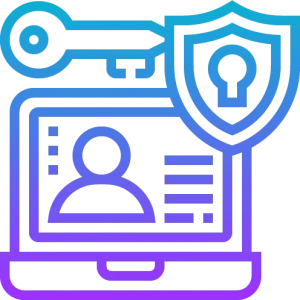Explore Our Powerful Tokenization Process
What is Tokenization?
Tokenization is the process of issuing ownership rights as a digital representation of assets that can be issued, transferred, and traded on a blockchain. These assets include real world assets (RWAs) like real estate and art, financial assets such as equities and bonds, non-tangible assets such as data, and non-replicable assets such as non-fungible tokens (NFTs).
Traditionally, the ownership of assets are recorded in a collaboration of industry databases, such as physical documentation, legal contracts, and various centralized registries that are accessible and managed by their governments. Asset ownership processes in each industry were structured to meet compliance with ongoing regulatory and operational maintenance to contribute to the greater health and security of ownership transactions in the economy.
As markets constantly evolve with breakthrough technologies, such as physical documents adopting web2 and cloud infrastructures in the late 90s and early 2000s, blockchain technologies is the next technological advancement further solving problems in ownership transactions where physical documents and web2 technology falls short, while filtering best use-case resilience in physical copies, web2, and web3.
A blockchain is commonly viewed as a revolutionary database or ledger for records of any data set and stored assets. Information of any kind, such as title ownership records, can be stored on the blockchain. Unlike web2 and cloud databases, blockchain is decentralized, indicating that its built-in technology is immutable, and the reversal of information is not allowed. No entity or person may control or alter the stored data. Instead, all users on the network collectively retain control based on their agreement and terms that are embedded on code, or cryptography.
With blockchain resilience, the tokenization process is now a proven technological advancement that can replace and improve many areas of asset ownership processes, such as compliance, contracts, and securitizing records with significantly more efficiency, and global adoption of this revolutionary system is rapidly in the works of major institutions, governances, and nearly every industry we can think of today.
There are multiple tools that help execute the tokenization process, including the use of smart contracts, multi-signature transactions, sidechains, oracles, and other developing protocols. While Laplace currently uses the increasingly popular smart contract protocol, we remain technology-agnostic are are drawn towards protocols that are competitively customer-centric in terms of compliance, security, transparency, transferability.
Asset Tokenization Process
Traditionally, the ownership of assets involves multi-departmental processes, higher transaction costs, and limited accessibility due to compliance typically scaled for local transactions. Here is an example of a traditional vs. tokenized real estate transaction process:
Traditional Real Estate Ownership
1 week to 9 months to close transaction
Tokenized Ownership Structure
1 day to several months to close transaction
Core Advantages of Tokenization
Tokenization simplifies the asset ownership process with its ability to eliminate intermediaries and lower transaction costs by automatically executing on risk management, compliance, and finally fulfill immediate settlements. Tokenization offers numerous benefits for the financial ecosystem, making it an attractive option for future investors. By simplifying the asset ownership process and eliminating intermediaries, tokenization provides the following enhanced core advantages:
Liquidity and Fractional Ownership: When tokenized assets are represented on a blockchain, this enables faster transactions and settlements to occur. This increases liquidity and makes fractional ownership of assets obtainable and seamlessly reveals untapped, premium assets accessible to a broader range of investors on widely adopted blockchain ecosystems in the future. Furthermore, tokenizing assets allow less liquid assets to become more accessible and tradable.
Diversification and Accessibility: Improved liquidity yields accessibility through new distribution channels on blockchain ecosystems and empowers investors to diversify portfolios more effectively. This democratizes access to investment opportunities beyond geographic boundaries. Without traditional transaction frictions, investors will be able to make market decisions alongside market timelines, allowing them to have more control over their investments and budgets.
Efficiency and Streamlined Payment Processes: Smart contracts automate processes by reducing reliance on intermediaries, streamlining the investment lifecycle, and increases overall cost-effectiveness with lowered transaction fees. Tokenized assets also facilitate more efficient payment systems for investments that provide periodic payments.
Transparency and Control: Programmable assets and smart contracts add a layer of automation to investment portfolios, empowering investors with more control over their assets, including automated dividend distributions and streamlined corporate actions. This builds trust among investors and institutions, mitigating concerns related to fraudulent activities with accountability while empowering investors with a direct relationship and more control over their assets.
Reduced Transactional Friction: Investors benefit from working with tokenized ecosystems because of their reduced transactional friction compared to traditional ecosystems. This increases market efficiency and realizes true investment experiences.
Laplace is a team of experts that are well-versed in both traditional and decentralized financial systems. We look forward to guiding our clients through this exciting journey to access premium investment options and deliver tangible, profitable results.
Tokenized real estate transactions adhere to real estate laws, while the tokenization of financial securities is subject to security regulations. The nature of the underlying assets, regulatory landscapes, market participants, liquidity considerations, and each platform’s focus requires specific, specialized processes. Here is an example (via Bitbond) illustrating tangible and distinguishable results between traditional vs. tokenized security offerings:
Where We Are, and Where We’re Going
Tokenization is a rapidly evolving technological process that has been tested, is being built upon, and is gaining traction in capital markets. As investors comprehend these new technologies and institutional adoption increases, both public and private sectors will produce economic changes as investment opportunities catch up to speed with the internet of information. The tokenization of investments is a crucial stepping stone in streamlining how investors perceive and understand investments, ultimately leading to a more balanced distribution of accountability, increased transparency, and a healthier financial ecosystem through each token issued.
Our team believes these goals can be achieved by prioritizing improving client experiences and reestablishing trust through tokenization.
According to a survey by Ernst & Young, investors may allocate 7% to 9% of their entire portfolio to tokenized assets by 2027. As tokenization continues to gain momentum, the composition of investment portfolios is also expected to shift. The average sophisticated investment portfolio, comprising of about 55% in private market investments, 40% in public market investments, and 5% in other real-world assets like real estate and art, will likely see an increase in tokenized assets and crypto investments in their portfolios. This shift will lead to a more diversified and accessible investment landscape, benefitting investors.
Security
As we observe the anticipated growth of tokenized platforms, awareness for security standards of each platform is incredibly important. Laplace’s integrated tokenization platform received top industry-rated security certifications (SOC2 Type 1 & ISO27001), reenforcing our commitment to safeguard our clients’ assets and investment activities.
Regulatory Compliance
While smart contracts incorporate compliance features to automate processes that are related to token transactions and asset issuance processes, our tokenization process also monitors investor activities to ensure that every financial transaction aligns with their governance laws. If investors deviate from regulatory compliance, our platform will automate compliance reporting.
We maintain communicative with our clients to mutual understanding of responsibilities to ensure that accurate reporting and expectations are achieved in a sophisticated investment market.

Security

Tokenize

Invest & Manage
Asset Custody and Management
Managing Wallets within the Laplace token marketplace offers noticeable benefits compared to conventional digital wallets. While typical digital wallets store and manage assets like cryptocurrencies and fiat, our tokenization process involves converting sensitive asset and ownership data while adhering to compliance and regulatory standards for the assets (real estate, financial securities). This integrated custodial service protects our clients’ assets during internet transactions, and effectively reduces the risk of data breaches and identity theft. This not only enhances the user experience for both clients and issuers but also sets us apart in the digital asset management landscape.
How It Works:
Enhanced Security: Laplace issued wallets use advanced encryption and updated authentication methods to protect customer data. Through a meticulous tokenization process, sensitive information is replaced with unique digital tokens to ensure exclusive access for our clients only.
Reduced Risk of Data Breaches and Identity Theft: By transforming sensitive information through tokenization, the exposure of our clients’ asset information is minimized among intermediaries and and compromised clouds in legacy, multi-departmental processes. Storing data in a non-original form makes it significantly more challenging for unauthorized individuals to access critical information, thus reducing the risk of data breaches and identity theft. Furthermore, transactions on the blockchain are traceable and assists regulators and law enforcements in locating information that can leads to theft. This provides our clients a safer and more secure investing environment.
Improved User Experience: While traditional digital wallets offer simplified payment methods, Laplace’s blockchain and tokenization-integrated wallets elevate the standards. With advanced security features, robust enforcement, true settlement times, and operational efficiencies, our wallets create a safer and more convenient investing environment.
Our powerful tokenization process is designed to offer premium assets for clients seeking a robust package of a secure, compliant, and user-friendly ecosystem to invest in. We keep it simple for you to manage your assets and grow your portfolio with us.
Laplace’s tokenization process is a practical solution that simplifies the complexities of traditional financial landscapes. Each issued token investment represents our commitment to compliance, efficiency, innovation, and ultimately our clients.
We invite you to join us in a future where world class assets are truly accessible, and we look forward to helping you reach your goals.